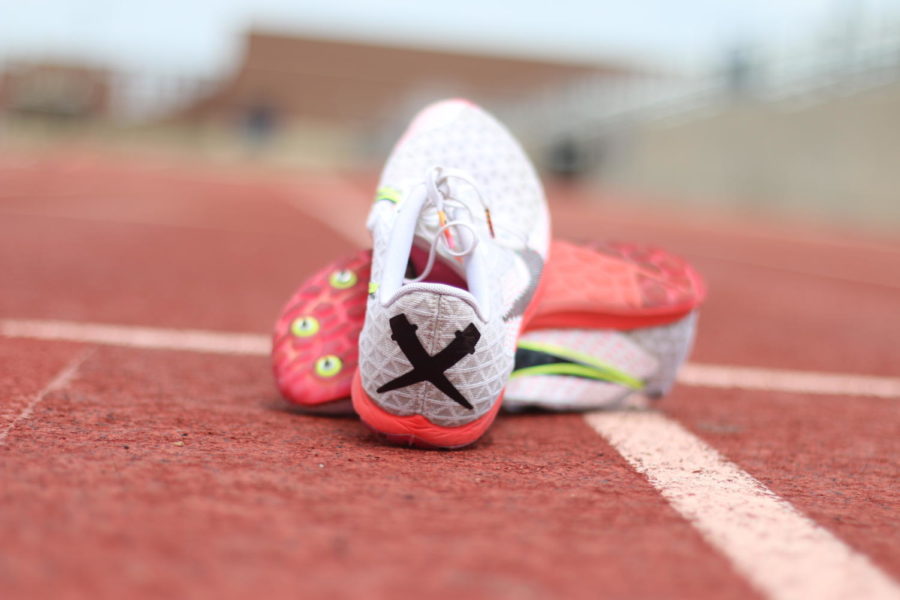Opinion: Overcoming athletic validation
I’ve run track for the last three years, and the sport taught me how to competitively rely on yourself. Nobody can run the race for you; I had to learn self-discipline and mental toughness in order to succeed in my sport.
The finish line is 300 meters away. 200 meters. 100 meters. My heart is racing, my feet pounding into the ground as I break into a sprint. The finish line is within sight. Everything hurts. The words from my coach’s pre-race speech echo in my head: “It all comes down to who’s willing to hurt more, who’s willing to push harder.”
As I cross the finish line, I’m handed my medal and time slows. I’ve placed fourth out of the almost 300 girls running in my race. This is what I had worked so hard for; all of the blood, sweat and tears finally paid off. Just like that, I’m hooked.
All I want are those intoxicating feelings: adrenaline, exhaustion and then accomplishment.
I’ve always been competitive: from racing my dad down the driveway to swinging the highest at recess, I had to be the fastest, strongest and most skilled. If I couldn’t accomplish my athletic goals, whether in soccer, track, softball or cross country, I felt I had failed.
I would feel like I should have worked harder, ran faster and paid more attention. I should have pushed through the pain and exhaustion. In a race, everyone is hurting; it’s about who’s willing to push through that pain: the winner is the one willing to hurt more.
This mindset creates great athletes, and it especially helped me in high school when I made the decision to join the cross country team. Other sports came easily to me; cross country did not.
For the first time in my life, I found a sport that truly challenged me, and my sole focus became improvement. The months of hard work spent in preparation eventually paid off when the season finally began. As I crossed the finish line of my first 5K, I was overwhelmed with pride. All I wanted was to improve my times, improve my form and become the best runner I possibly could. After two more races and two more medals, a varsity spot was so close I could practically taste it.
That was until I dislocated my knee hours after a meet. In a matter of seconds, my season was over. I had two knee surgeries and nine months of physical therapy ahead of me.
Some people don’t recognize they have an addiction until they no longer have access to a substance. I didn’t realize how much I relied on my sport for validation until I could no longer run. The months that followed my surgeries were the darkest time of my life.
When my surgeon finally cleared me to run, I was ecstatic. That was, of course, until I began to train and realized how out of shape I had become. After nine months on the bench, I was far behind the rest of my team. My mental health began to plummet again as I struggled to regain my strength.
During my recovery, I struggled with constant comparison to my teammates. It wasn’t until the beginning of track season – a year after my second surgery – that I realized how detrimental my need for athletic validation was.
As I crossed the finish line of my first 1600 meter race of the season, I felt pride for the first time in over a year, not only because of my time or place in the race, but because I recognized I had been competing against myself. I had been fighting to push through my recovery, I had fought all of the thoughts in my mind telling me to quit and I had pushed through two major reconstructive knee surgeries to be able to once again do what I loved most — run.

Sophomore Bree Andrews is a reporter and this is her first year on staff. In her free time she enjoys spending too much time on Pinterest, watching cheesy...

Senior Peyton Kuschmeider is the multimedia and opinion editor and this is her third year on staff. She enjoys photography, going to church and hanging...



